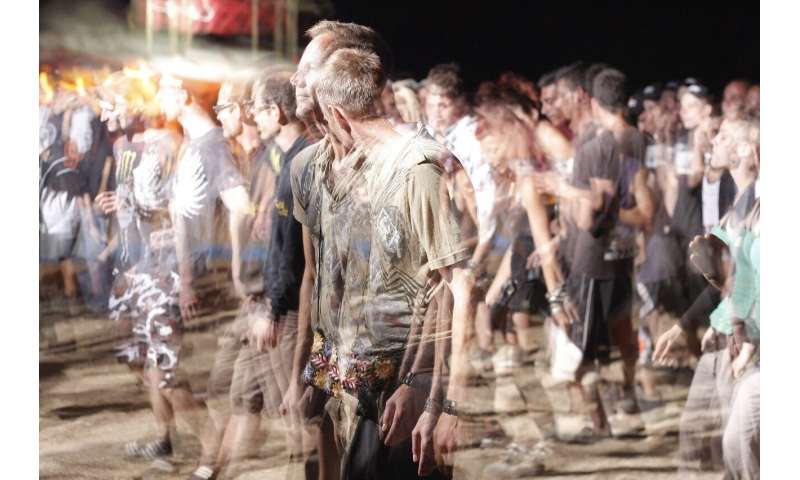Evidence of large groups responding more slowly to crises due to false information
by Bob Yirka
A team of researchers from Carnegie Mellon University and Yale University has found that larger groups of people tend to respond slower to a crisis than smaller groups because false information can impede urgency. In their paper published in the journal Proceedings of the Royal Society A, the group describes experiments they conducted with volunteers deciding when to "evacuate" after a simulated disaster, and what they learned from them.
Events that negatively impact large numbers of people tend to be described as crises—those involved in an event then find themselves making decisions about how best to protect themselves and/or other people they care about from possible threats. Such threats can be physical, such as the pandemic we are currently experiencing, or material, such as a stock market crash. In either case, people involved in a crisis are often forced to rely on information or the behavior of others when deciding what to do themselves. In this new effort, the researchers sought to learn more about how people in such situations make decisions, and what sorts of behavior impact decision-making during a crisis.
The work involved enlisting the assistance of 2,480 volunteers, who were divided into 108 teams of various sizes. Each of the teams was asked to decide when they needed to "evacuate" during a disaster scenario. Each of the teams also had a plant—a person who knew more about the details of the crisis and thus served as an "expert" on how to effectively deal with it. The researchers monitored the communications of the social networks that formed spontaneously as the people in the teams talked to each other, giving opinions and advice to one another.
After analyzing the behavior of all the groups, the researchers found that the larger groups took longer to respond to the crisis, and in some cases, responded in ways that were not helpful or appropriate in dealing with the situation. They found that this was because of the tendency of some people in the groups to discount or discredit useful information from the expert, and in some cases, to start rumors that quite often were not based on reality. When such information was disseminated it led to indecision by others in the group, which sometimes led to paralysis—people not doing anything at all because they could not decide what to do.
More information: Hirokazu Shirado et al. Collective communication and behaviour in response to uncertain 'Danger' in network experiments, Proceedings of the Royal Society A: Mathematical, Physical and Engineering Sciences (2020). DOI: 10.1098/rspa.2019.0685
Journal information: Proceedings of the Royal Society A
© 2020 Science X Network